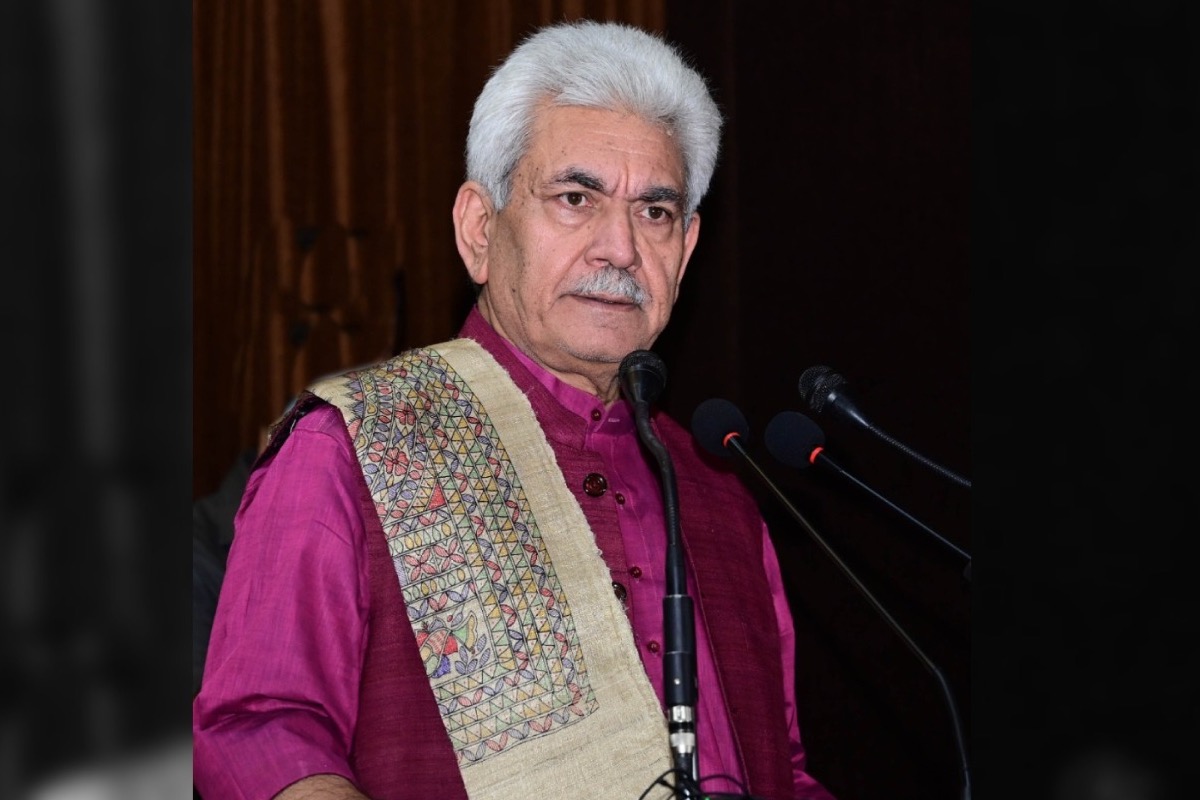The Jammu and Kashmir budget for the financial year 2023-24 stands at ₹1,18,500 crores, with a revenue expenditure of ₹77,009 crores and capital expenditure of ₹41, 491 crores.
The capital component of the budget has increased substantially. The expected revenue receipts are ₹1,06,061 crores whereas revenue expenditure is expected to be ₹77,009 crores, thereby making available revenue surplus for capital expenditure to the tune of ₹29,052 crores,” reads the budget document.
Jammu and Kashmir has witnessed an economic growth of 14.64 per cent and tax revenue growth of 31 per cent in the last fiscal last year. The economy is expected to grow at 10 per cent in the next financial year.
LG Manoj Sinha’s administration plans to roll out a holistic agriculture development scheme with 29 proposed projects at an outlay of ₹5,012 crores over a period of five years.
The government is aiming to create additional job opportunities for 287910 people in agriculture, horticulture and allied sectors. It also plans to create over 18,861 new business enterprises over the period of next five years.
For industries and commerce sector, an allocation of about ₹741.79 crores has been made under capital expenditure for the year 2023-24 which is ₹283.40 crores – more than the previous year’s budget allocation.
For youth empowerment, employment, entrepreneurship, skill development and sports activities, an allocation of about ₹396.63 crores has been made under capital expenditure for the financial year.
A massive skill development programme which included introduction of latest streams and technologies at the college level, big industrial setups, start-ups and the exponential growth of small and medium entrepreneurs as well as self-help groups have been made in the budget today cater to all these aspects to take care of youth aspirations.
The emphasis of the budget is also on strengthening grass-roots democracy with massive flow of funds for all three tiers of panchayati raj, with efforts on holistic improvement in infrastructure, roads and water and setting up agro-based small-scale industries to double the income of farmers and other villagers.
Moreover, power sector reforms and augmentation of the distribution network will continue in the budget and the projection of doubling the electricity generation capacity in the coming years is there. Budgetary allocations are there to develop a road network with scores of bridges and tunnels to make the remotest areas accessible. Major HEPs will generate new employment opportunities for locals and change the outlook of rural Jammu and Kashmir.
Similarly, ₹5000 crores have been provisioned for Jal Jeevan Mission. All districts will be covered under ‘Har Ghar Nal Se Jal’. Funds are being earmarked for ensuring quality assurance, setting up of labs and introduction of a service level benchmarking system. ₹500 crores have been provisioned for the Jal Jeevan Mission in the Union territory.
Similarly for tribal affairs, an allocation of about ₹446.76 crores has been made under capital expenditure for the year 2023-24 which is ₹13.97 crores more than the previous year’s budget allocation.
Another important project mentioned in the state budget is the elevated light metro rail. The project will be rolled out in capital cities of Jammu and Kashmir. The Centre is also looking at full implementation of the Gati Shakti project in the state and key roads to be developed as part of G20 summit meetings and roads to every village.
The government has said that ₹400 crores will be provided in the budget for construction of transit accommodations for Kashmiri migrant employees. 1,984 of such transit accommodations are to be completed in 2023-24. ₹393 crores have been allocated for continuation of cash assistance and food grains for Kashmiri and Jammu migrants.
The budget statement also noted that J&K is the first among states/Union territories to have a district good governance index for assessing the public service delivery at district level.










